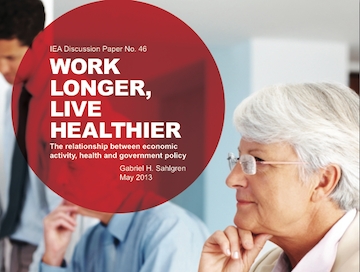Research by the Institute of Economic Affairs has found that retiring early can lead to "drastic decline" in health in later life.
The research by the IEA and Age Endeavour Fellowship found retirement was detrimental to people's mental and physical health.
In its report 'Work Longer, Live Healthier' it found an initial pick-up in health at first but deterioration over the medium to long term due to lack of physical activity and social interaction.
Retirement increased the probability of depression by about 40 per cent, probability of having at least one diagnosed physical condition by 60 per cent and probability of taking pharmaceutical drugs by 60 per cent.
The organisations suggested this was evidence for the Government to remove restrictions on people working longer.
{desktop}{/desktop}{mobile}{/mobile}
This would improve public finances, improve general health and allow people to control their own retirement.
However, it acknowledged there may be some people who were unable to work longer and would suffer more than if they had been allowed to retire earlier. This could mean longer periods of sick leave and increased public spending on healthcare.
Edward Datnow, chairman of the AEF, said: "More emphasis needs to be given to ways of enabling a work-life balance beyond today's normal retirement age with legislative discouragements to extending working life being replaced with incentives. There should be no 'normal' retirement age in future.
"More employers need to consider how they will capitalise on Britain's untapped grey potential and those seeking to retire should think very hard about whether it is their best option."
• Want to receive a free weekly summary of the best news stories from our website? Just go to home page and submit your name and email address. If you are already logged in you will need to log out to see the e-newsletter sign up. You can then log in again.

